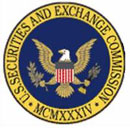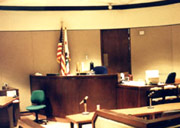| Supreme Court justices have track records that make predicting their rulings on many topics more than a mere guess. Then there is the issue of the Second Amendment and guns, about which the court has said virtually nothing in nearly 70 years. That could change in the next few months. The justices are facing a decision about whether to hear an appeal from city officials in Washington, D.C., wanting to keep the capital's 31-year ban on handguns. A lower court struck down the ban as a violation of the Second Amendment rights of gun ownership. The prospect that the high court might define gun rights under the Constitution is making people on both sides of the issue nervous. "I wouldn't be confident on either side," said Mark Tushnet, a Harvard Law School professor and author of a new book on the battle over guns in the United States. The court could announce as early as Tuesday whether it will hear the case. The main issue before the justices is whether the Second Amendment protects an individual's right to own guns or instead spells out the collective right of states to maintain militias. The former interpretation would permit fewer restrictions on gun ownership. The Second Amendment reads: "A well regulated militia, being necessary to the security of a free state, the right of the people to keep and bear arms, shall not be infringed." The federal appeals court for the District of Columbia was the first federal panel to strike down a gun-control law based on individual rights. The court ruled in favor of Dick Anthony Heller, an armed security guard whose application to keep a handgun at home was denied by the district. Most other U.S. courts have said the Second Amendment does not contain a right to have a gun for purely private purposes. Chicago has a similar handgun ban, but few other gun-control laws are as strict as the district's. Four states — Hawaii, Illinois, Maryland and New York — are urging the Supreme Court to take the case because broad application of the appeals court ruling would threaten "all federal and state laws restricting access to firearms." The district said its law, passed in 1976, was enacted by local elected officials who believed it was a sensible way to save lives. The law also requires residents to keep shotguns and rifles unloaded and disassembled or fitted with trigger locks. The city's appeal asks the court to look only at the handgun ban because local law allows possession of other firearms. Critics say the law has done little to curb violence, mainly because guns obtained legally from the district or through illegal means still are readily available. Although the city's homicide rate has declined dramatically since peaking in the early 1990s, it ranks among the nation's highest, with 169 killings in 2006. Heller said Washington remains a dangerous place to live. "People need not stand by and die," he said in court papers. He said the Second Amendment gives him the right to keep working guns, including handguns, in his home for his own protection. The last time the court examined the meaning of the Second Amendment was in a 1939 case in which two men claimed the amendment gave them the right to have sawed-off shotguns. A unanimous court ruled against them. Gun control advocates say the 1939 decision in U.S. v. Miller settled the issue in favor of a collective right. Gun rights proponents say the decision has been misconstrued. Chief Justice John Roberts has said the question has not been resolved by the Supreme Court. The 1939 decision "sidestepped" the issue of whether the Second Amendment right is individual or collective, Roberts said at his confirmation hearing in 2005. "That's still very much an open issue," Roberts said. Both the district government and Heller want the high court to take the case. The split among the appeals courts and the importance of the issue make it likely that the justices will do so, Tushnet said. |









